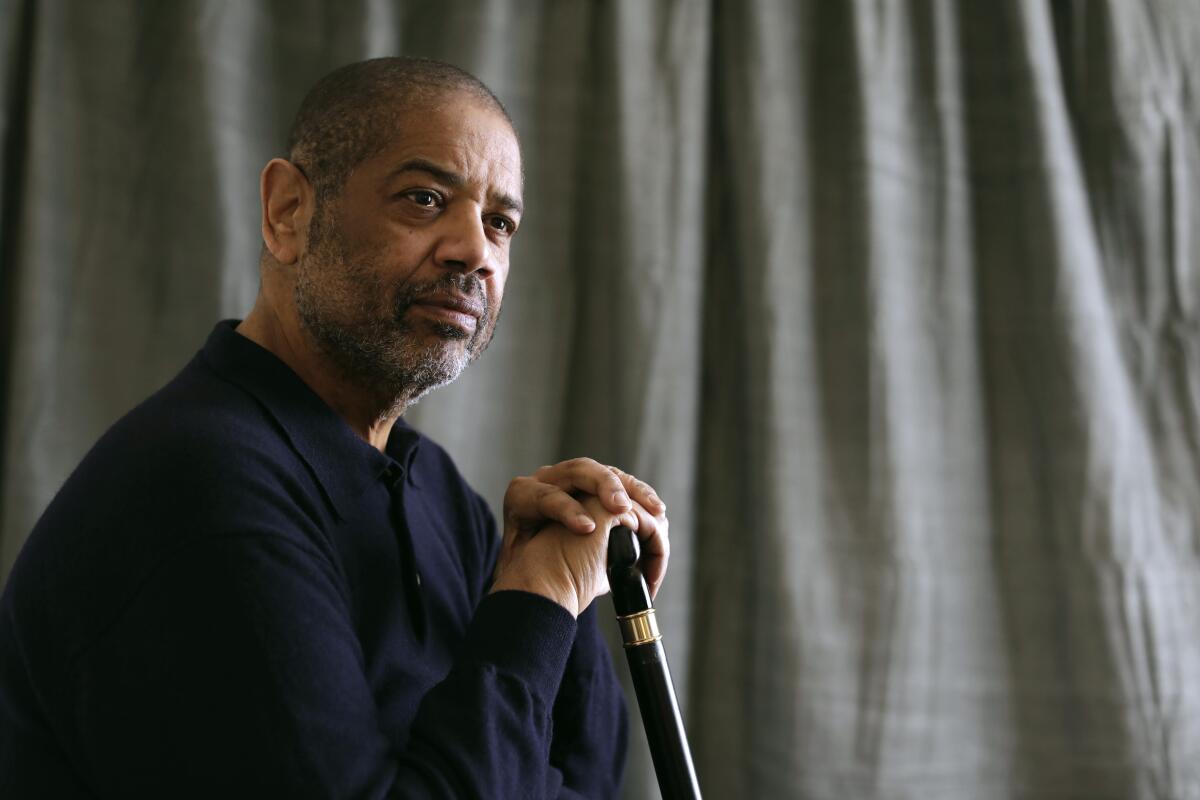Julia Roberts as Harriet Tubman? Gregory Allen Howard on ‘Harriet’s’ difficult journey to the big screen

- Share via
Picture 1994: “This is a great script. Let’s get Julia Roberts to play Harriet Tubman,” said the then-president of a studio sublabel. Fortunately, there was a single black person in that studio meeting 25 years ago who told him that Harriet Tubman was a black woman. The president replied, “That was so long ago. No one will know that.”
Thus began the epic 25-year journey of getting my Harriet Tubman script to the screen.
Producers John Watson and Pen Densham, partners in Trilogy Entertainment, called me in to discuss commissioning a script about Harriet Tubman. It would be my first assignment. I told them that Harriet was one of our icons and I had studied her in college as an American history major. I further explained that I became a screenwriter to write stories just like this, but I would not write a history lesson. I told them I wanted to write a script that made her an action figure. I wanted to entertain people, not preach to them.
I spent about six months researching and writing the first draft of “Freedom Fire.” I made it as exciting and entertaining as I could, and made her an action figure who would inspire those who watched this movie.
Trilogy must have loved my script because they sent me a bottle of Champagne! I thought that was bizarre. Why’d you send me Champagne? John Watson said because the script was “great, amazing.” Naively, I asked, “Aren’t all scripts great?”
I did another draft and they turned it in to the studio. Needless to say, the studio would not be going forward with “Freedom Fire.” John called to tell me that the script was “dead” because Trilogy was exclusive to the studio.
I got upset. I had spent eight months working on this. What do you mean dead? I told him I want to get it made. He said: “You’re the producer now; shop it and try to get it made.”
From that day in 1994, that’s exactly what I did. I never stopped pushing “Freedom Fire” (“Harriet”) down the track. The number of doors slammed in my face, the number of passes, the number of unreturned phone calls, canceled meetings, abandonments, racist rejections, the number of producing partners who bailed, are too many to list. And later I foolishly used my status as a commercial screenwriter to get meetings and then sneaked in a pitch for Harriet Tubman’s story. Bait and switch.
What I realize now is that the film was not going to get made until the environment in Hollywood changed — Hollywood had to go through its own climate change. Nobody in Hollywood wants to be an outlier. Hollywood has a herd mentality. There was no herd around the story of a former slave girl who freed other slaves. All the people I pitched this to, submitted the script to, were asking themselves one question: “How do I sell this story to my boss, to a studio, to my financial partners?” Fear chilled them.
So, I put “Freedom Fire” on the shelf and took it off the shelf every few years. The answer was always no; then eventually it turned into “not yet.” Miraculously, “12 Years a Slave” came out in 2013 and won best picture. I waited two more years for “12 Years” to collect its huge box office, changed the date on the cover page of “Freedom Fire” again, then went out to find a producing partner who wouldn’t bail on me after a few passes. I found her, producer Debra Martin Chase, in 2015. And most importantly, my WME agent, Danny Greenberg, said the agency would back us.
We partnered up and started fighting, joined later by producer Daniela Taplin Lundberg and later still adding writer-director Kasi Lemmons. We trekked down the indie road until Focus Features got involved last year. Now the door was open. #OscarsSoWhite, DiversityHollywood and the other pushes and protests for inclusion and diverse storytelling had moved the needle: The climate had changed.
It still took a few years more to get it made — packages fell apart, financing fell out, talent dropped out — but the important thing is there was no longer hostility to the idea. And out of this sea change came not only “Harriet” but the movie that ushered in this new era: “Black Panther.” It’s no accident that “Harriet” went into production nine months after the release of “Black Panther.”
As someone who has been in this business for decades, I am enjoying the warmth of the Hollywood climate change, and the diverse stories that are bathing in that sunlight, happy that Harriet’s other journey is now finally complete.
More to Read
Only good movies
Get the Indie Focus newsletter, Mark Olsen's weekly guide to the world of cinema.
You may occasionally receive promotional content from the Los Angeles Times.










